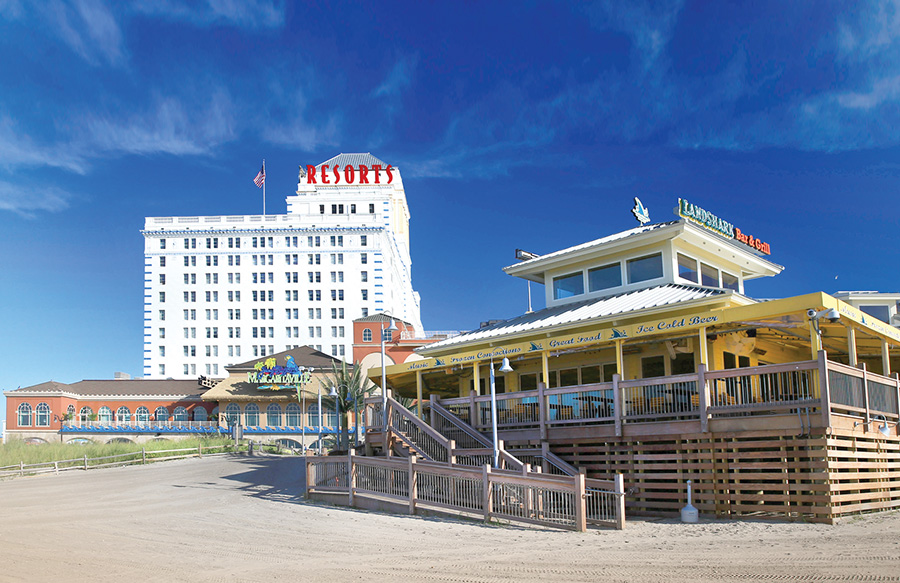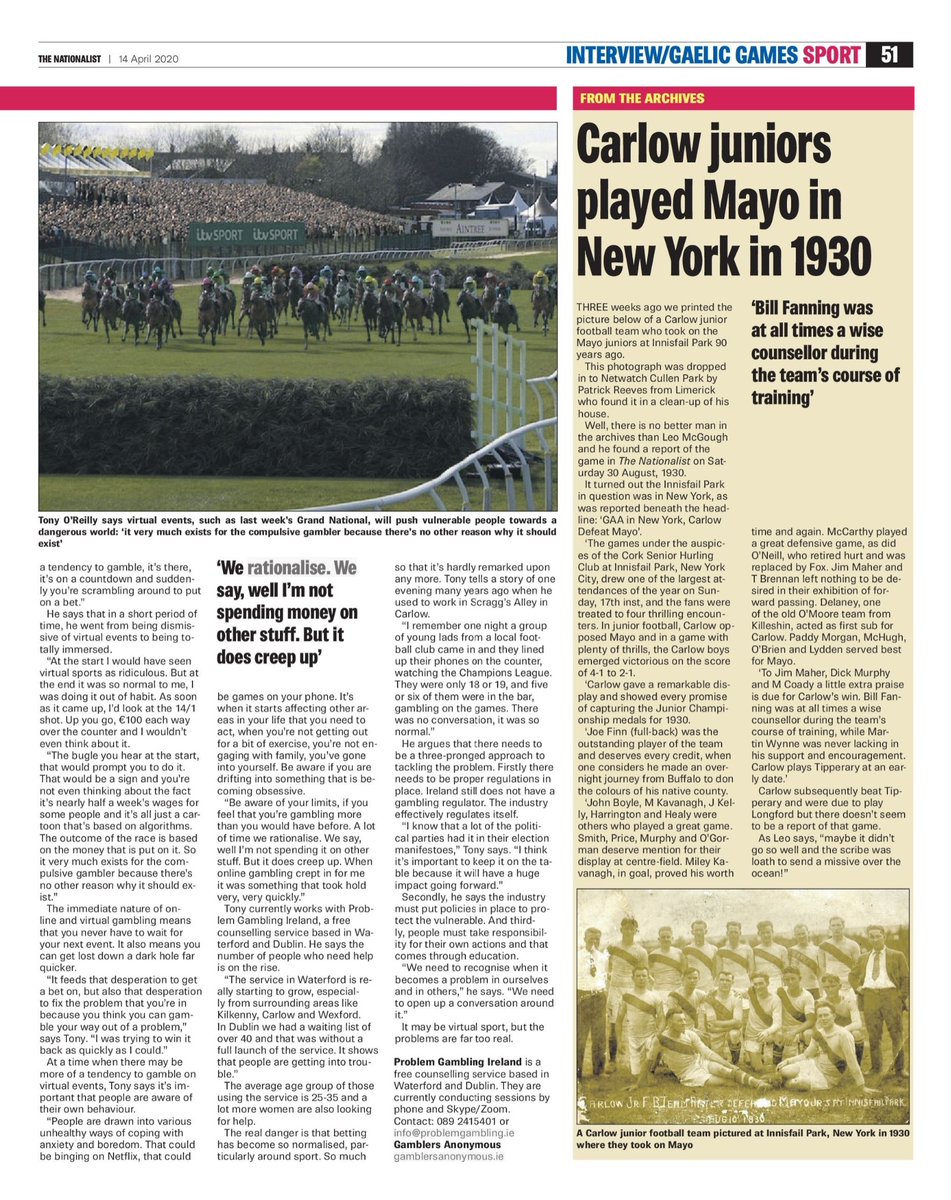Problem Gambling Ireland Twitter
Co Clare is in the grip “of a problem gambling crisis” according to Sinn Féin members in the county.
In a statement to The Clare Echo, Sinn Féin county PRO, Peter Flannigan commented that people living in the county particularly young men and teenagers are more susceptible to problem gambling than ever before. “We are in the grip of a problem gambling crisis.”
Dr William Flannery, president of the College of Psychiatrists in Ireland, said: “The impacts of the Covid-19 pandemic have been felt harshly by those struggling with problem gambling. Gamblers Anonymous is a fellowship of men and women who share their experience, strength and hope with each other that they may solve their common problem and help others to recover from a gambling problem. This is the website of GA in Ireland.
257 people were treated for problem gambling in the Irish health service last year with 2019 figures expected to be around the same, as of July 82 cases were assessed in this bracket. The National Drug Treatment Reporting System started collecting gambling-related data in 2010 and in the past nine years, there has been 1,750 cases where the main problem substance was recorded as gambling.
Problem Gambling Ireland Twitter Posts
During seven years, there has been a 40% increase in individuals presenting themselves with such addiction problems. No breakdown based on age, gender or geography is provided in the figures.
Flannigan outlined that approximately €2.2 billion is spent every year on gambling “or €470 per adult. “If you consider those Clare people who wouldn’t ever lay a bet, that means problem gamblers in the county are losing a considerable amount of money each year.”
Problem Gambling Ireland Twitter Yahoo
“Despite what the gambling industry will say, we need stiffer regulation and we need it urgently. We cannot let ‘a bit of craic’ blind us to the real hardships caused by problem gambling. Getting access to gambling in Clare has never been easier. Bookmaker machines are regularly visited by young men but it is even simpler to take out a mobile phone to see the next five races,
GAA scores or play virtual casino games. Combined with aggressive marketing, Clare people are more susceptible than ever to developing problem gambling habits, particularly teenage boys and young men.”
He concluded, “We are in the eye of a problem gambling storm and hoping the problem will go away by itself is dangerous. Gambling should not to be banned, but it is far past time that we see the industry properly regulated. Clare people need to be able to watch a sporting event without being bombarded with gambling advertisements. We need children to be able to go online without being targeted by gambling ads. While problem gambling is not a new problem, it is more complex now and far more widespread than ever before, and we need to ensure the health service, society, and politicians are responding accordingly. We need proper protections for problem gamblers who wish to stop gambling. We need responsibility from the gambling industry. Above all, we need proper regulation.”
Support is available from Problem Gambling Ireland (089 241 5401), Samaritans (116 123) or Gambler’s Anonymous.
Broadcaster ITV announced that it intended to show a virtual Grand National after the Aintree event was cancelled due to the covid-19 pandemic.

Problem Gambling Ireland has criticised the decision by ITV to broadcast the virtual race.
Virtual racing poses a particular problem to gambling addicts due to the frequency of the races, combined with online accessibility and the nature of the parameters.
Problem Gambling Ireland Twitter Page
Usually, in a real race, odds will contract for a horse that has a lot of money placed on it, indicating a likely favourite to win the race.
However, no such mechanism is in place for virtual racing, with the winner of the race decided by a computer programme the second it starts.
Problem Gambling Ireland Twitter Site
Addiction Counsellor Barry Grant says bookies are stooping low:
'It smacks of desperation from the bookies at this stage, when you have a virtual Grand National. People bet on the Grand National as a live sporting event. If you're betting on a virtual race, the second the race starts, a random number generator decides which horse is going to win that race.'
If you are concerned about your own #gambling or that of a loved one, help is available. Don't suffer in silence. @PatKennyNT@NewstalkFMhttps://t.co/VINkDcOtrUpic.twitter.com/CBXLmYqBO3
— Extern Problem Gambling Project (@ExternProbGam) March 27, 2020
Bookmakers have projected unprecedented losses due to the cancellation or postponement of so many sporting events due to the coronavirus pandemic.
ITV will no doubt be hoping to recoup losses from the absence of the Aintree race next weekend.
Mr Grant says in the absence of live sport, virtual sports will become more prevalent, posing a danger to those who are addicted to gambling:
'The worry there, in the absence of live sport, some of the bookmakers on social media are encouraging people to play not just virtual racing, there's virtual soccer, car racing, and basketball. When it's that level of frequency...if you take the average punter, who might be starting out betting on a game of soccer, it could be two hours before between the time you place your bet before you know the outcome of the bet. Versus this high frequency betting which is more like slot machines and roulette, which is the most addictive form of gambling,'

The gambling market is currently not faced with any regulators in Ireland. Mr Grant said without a regulator, it's just a 'race to the bottom.'